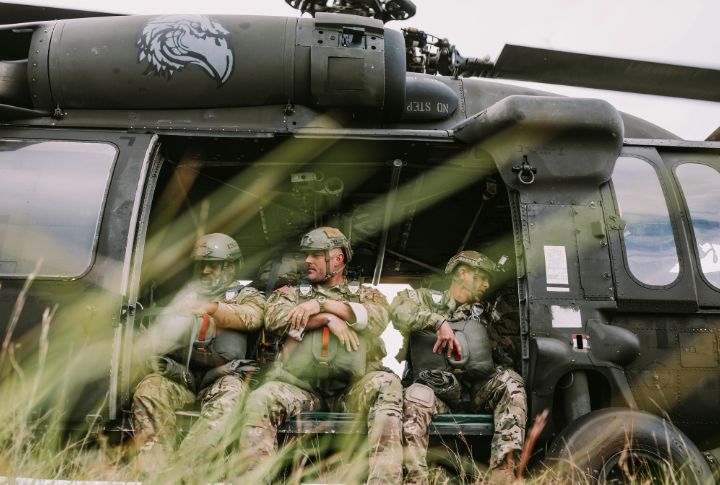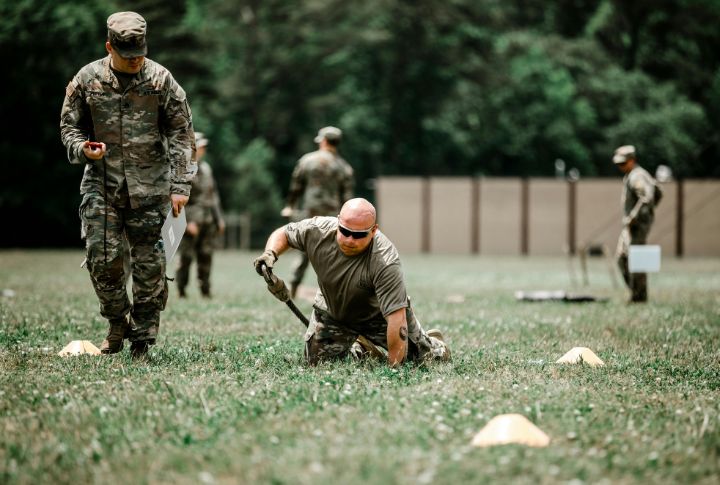
Most leadership advice sounds great until reality punches you in the face. Military veterans learned their lessons differently—in situations where theory meets chaos and only results matter. No PowerPoints, no motivational posters, just raw truths forged under conditions most people can’t imagine. Here are the leadership realities only service members truly understand.
Lead By Example

In the military, leadership isn’t about words—it’s about choices made when the stakes are life and death. Commanders who advance through chaos teach endurance through example. Every act of courage becomes a silent lesson in grit, which reminds their teams that strength shows most clearly in the hardest moments.
Effective Communication

Battlefields test communication in ways no classroom can. When technology fails and noise overwhelms, understanding shifts from verbal cues to instinctive trust. Non-verbal direction keeps movement alive and morale steady. That experience builds more than skill; it forges composure and the resolve to lead through uncertainty.
Team Building

Combat strips away everything except what truly matters: the people beside you. Veterans learn that real teams aren’t built through trust falls or corporate retreats; they’re forged when survival depends on the person next to you. Shared hardship creates bonds that outlast any challenge. That depth of connection transforms how they approach teamwork forever after.
Resilience

Picture leading a team after everything goes wrong. The plan collapses. People are hurt. Military leaders know this reality intimately. Still, the mission continues because surrender isn’t wired into their system. Every setback carves out a deeper well of strength. That kind of resilience follows them home.
Servant Leadership

Veterans know the difference between bosses and leaders. Actual leadership means taking the smallest rations, the worst sleeping spot, the longest watch. They’ve experienced how these choices build trust that words never could. Teams push harder for someone who shares their suffering rather than observes from comfort.
Never Give Up

True leadership reveals itself when circumstances become unbearable. Commanders face moments where logic screams “retreat,” but duty demands forward. Despite the fog, the broader objective remains visible. Adversity teaches adaptation in ways comfort never could.
Fire Support Mastery

Support feels distant when communication lines fail and the ammo count drops. Leaders step forward then, not to bark orders but to steady nerves. Every choice carries weight—too soon, the enemy wakes; too late, the chance slips away. That balance separates survivors from spectators.
Precision Under Pressure

When chaos erupts, veterans don’t panic—they perform. Years of drilling the same movements until they become automatic create leaders who stay sharp when everyone else freezes. Excellence isn’t born in the moment of crisis; it’s built through countless hours of practice nobody sees. That preparation turns pressure into clarity.
Mutual Understanding And Trust

Shared hardship, like enduring cold rations and exhaustion during extended operations, is the crucible in which trust is formed. This trust is vital for survival in combat, as it strengthens the bonds between soldiers. However, leadership isn’t static; it calls for rapid adaptation as battlefield realities change, usually requiring a departure from established tactics.
Go Beyond Playbooks

Despite strategies providing a common language for warfighting, it’s not meant to be the solitary route to success. Commanders must exhibit flexibility and think outside the box when situations necessitate it. In military operations, this ability to pivot, coupled with boldly accepting risk, can lead to significant rewards.
Decisiveness

Waiting for perfect clarity gets people killed. Military service hammers home one lesson: make the call with whatever information you have right now. Conditions constantly shift, communication fails, and plans crumble. Leaders who freeze, hoping for certainty, create more danger than those who choose imperfectly but quickly.
Mentorship In The Ranks

The strongest bonds form when experienced soldiers invest time in teaching those coming up behind them. Knowledge shared in tough conditions sticks deeper than any classroom lesson ever could. Veterans carry this forward, building cultures where developing others isn’t optional.
Strategic Patience

Not every problem demands immediate action. Veterans learn through experience that some situations improve simply by letting them develop fully before intervening. This restraint separates impulsive managers from strategic thinkers. Patience is confidence that you’ll recognize the decisive moment when it arrives and act decisively then, not prematurely now.
Lift Others Up

Service teaches that strength multiplies when you invest in those around you. Experienced leaders challenge their people with meaningful responsibility, turning potential into proven skill. They’ve learned that holding power creates dependence, while sharing it builds competence. Teams grow strongest when everyone develops the ability to lead when circumstances demand it from them.
Authenticity And Confidence

Challenges have a way of revealing who leaders really are. When an operation fails, the instinct to deflect blame disappears. Owning that failure in real time—while keeping your team alive—builds the kind of trust no amount of charisma can create. Sleepless nights and loss teach you that confidence without authenticity is just noise.
Leading Through Loss

Grief hits everyone in uniform eventually. What separates great leaders is how they process pain without letting it paralyze their team. They acknowledge hurt honestly while finding ways to honor those lost through continued dedication. Vulnerability becomes strength when shared purposefully.
Integrity And Ethics

Moral courage shows up when the right choice costs you everything. Imagine a commander who refuses to bend the truth in an after-action report, and knowing full well it exposes his mistakes. Now add another layer: he stops his own troops from crossing ethical lines, fully aware it might blow the mission.
Continuous Learning

Battle zones function as brutal classrooms where graduation never comes. Intel changes. Enemies adapt. So, leaders must absorb new information instantaneously because static thinking gets people killed. Failed missions become textbooks when teams review what went wrong, extract insights, and then apply that hard-won knowledge before the next engagement.
Emotional Intelligence Under Fire

Leaders who read the morale and fear levels in their teams can prevent panic and restore focus. Empathy, in this context, becomes tactical: knowing when to push and when to pause saves lives. Emotional intelligence isn’t about softness—it’s about awareness that keeps units functioning when chaos peaks.
Speaking Truth To Power Under Fire

A corporal watches mortar rounds walk closer to his position and realizes his commander has the wrong picture. He keys the radio and provides a correction that contradicts the officer’s assessment. Combat strips away the usual hesitation about challenging rank because accuracy matters more than bruised egos when the next decision determines who survives.

